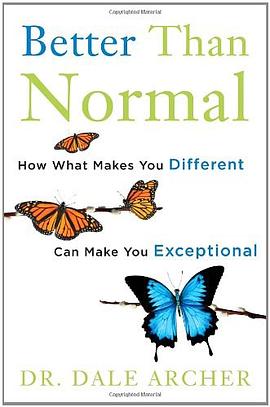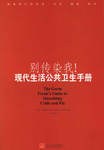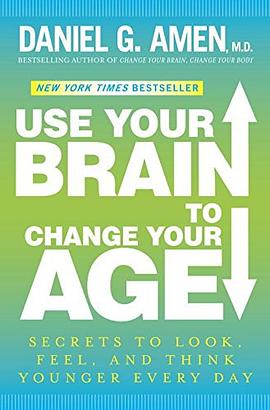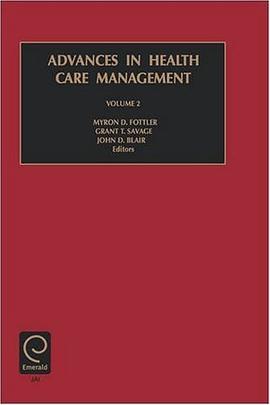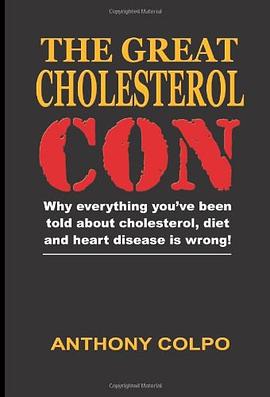

具体描述
For more than a century, the American medical profession insisted that doctors be rigorously trained in medical science and dedicated to professional ethics. Patients revered their doctors as representatives of a sacred vocation. Do we still trust doctors with the same conviction? In "Trusting Doctors", Jonathan Imber attributes the development of patients' faith in doctors to the inspiration and influence of Protestant and Catholic clergymen during the nineteenth and early twentieth centuries. He explains that as the influence of clergymen waned, and as reliance on medical technology increased, patients' trust in doctors steadily declined. "Trusting Doctors" discusses the emphasis that Protestant clergymen placed on the physician's vocation; the focus that Catholic moralists put on specific dilemmas faced in daily medical practice; and the loss of unchallenged authority experienced by doctors after World War II, when practitioners became valued for their technical competence rather than their personal integrity. Imber shows how the clergy gradually lost their impact in defining the physician's moral character, and how vocal critics of medicine contributed to a decline in patient confidence.The author argues that as modern medicine becomes defined by specialization, rapid medical advance, profit-driven industry, and ever more anxious patients, the future for a renewed trust in doctors will be confronted by even greater challenges. "Trusting Doctors" provides valuable insights into the religious underpinnings of the doctor-patient relationship and raises critical questions about the ultimate place of the medical profession in American life and culture.
作者简介
目录信息
读后感
评分
评分
评分
评分
用户评价
阅读《Trusting Doctors》的过程中,我多次被书中那些充满人性光辉的细节所打动。作者并没有将医生描绘成高高在上的“圣人”,而是将他们还原成有血有肉、有情感、有责任感的人。我看到了医生们在深夜里守候在病床旁,看到了他们在面对家属的焦急时所给予的安慰,也看到了他们在成功治愈患者时所流露出的喜悦。这些瞬间,让我更加深刻地理解了“信任”不仅仅是基于专业技术,更是基于情感的连接和人性的温暖。书中关于“医德”的探讨,更是让我深思。在利益驱动和道德约束之间,医生如何坚守初心,如何始终将患者的利益放在首位,这不仅仅是对职业精神的考验,更是对个人品格的锤炼。这本书让我相信,当我们能够看到医生身上这种高尚的品格时,信任便会自然而然地产生。
评分读完《Trusting Doctors》,我内心充满了对医生的敬意,也对如何更好地与他们合作有了更清晰的认识。这本书让我明白,信任不是天然存在的,而是需要双方共同努力去建立和维护的。它需要医生的专业、耐心和人文关怀,也需要患者的理解、尊重和积极参与。我从中学习到了如何更有效地与医生沟通,如何更理性地看待医疗过程,如何更积极地成为自己健康的主导者。这本书的价值,不仅仅在于它传递的医学知识,更在于它对于医患关系这一核心问题的深刻洞察。我相信,这本书将成为我未来面对医疗挑战时,一份宝贵的精神财富,指引我以一种更积极、更信任的态度,去拥抱健康的生活。
评分《Trusting Doctors》给我带来的最大启示之一,是关于“透明度”在建立信任中的作用。作者详细阐述了医生如何通过公开、清晰地解释病情、治疗方案、潜在风险和预后,来赢得患者的信任。我了解到,有时患者之所以会产生疑虑,往往是因为信息不对称,他们不了解整个过程,自然会产生不确定感。书中分享了许多医生如何通过耐心细致的讲解,甚至借助图表、模型等辅助工具,来帮助患者理解复杂的医学概念,这让我看到了医生在沟通方面的专业素养。同时,我也反思了自己在作为患者时,是否足够主动地去寻求信息,是否足够坦诚地表达自己的担忧。这本书促使我去思考,信任不仅仅是医生单方面的付出,更是双向的互动。当我能够积极参与到自己的医疗决策中,当我能够理解并尊重医生的专业判断时,这种信任关系才会更加稳固。
评分本书中对于“知情同意”这一医疗伦理原则的深入阐述,给我留下了深刻的印象。作者详细解释了知情同意的真正含义,它不仅仅是让患者签署一份同意书,更是一个充分沟通、理解和自主选择的过程。我了解到,医生需要用患者能够理解的语言,详细解释手术或治疗的必要性、风险、替代方案以及可能产生的后果,然后由患者在充分知情的情况下,做出自己的决定。这种尊重患者自主权的做法,是建立信任的基石。书中也探讨了在某些紧急情况下,或者当患者认知能力受损时,如何进行妥善的处理,这让我看到了医学伦理的复杂性和重要性。我认识到,作为患者,我也有权利了解和参与到自己的医疗过程中,并且我的意见应该被尊重。这种权利意识的觉醒,也反过来促进了我对医生的信任。
评分收到《Trusting Doctors》这本书,我内心充满了期待,这不仅仅是因为书名本身传递出的信任感,更因为近年来医疗领域的诸多事件,让我对医生这个职业以及我们与他们之间的关系产生了深深的思考。我一直认为,医生肩负着救死扶伤的重任,他们的专业知识、临床经验和人性关怀,是我们面对疾病时的坚实后盾。然而,信息爆炸的时代,各种声音交织,有时会让人对医学的严谨性产生疑问,对医生的判断力感到一丝不安。这本书的出现,恰似在迷雾中为我指明方向,我迫切地想从其中一探究竟,了解在复杂多变的医疗环境中,我们该如何建立和维护与医生的信任。我相信,作者一定通过深入的采访、严谨的研究,或者亲身的经历,为我们揭示了信任的基石,以及如何在这个过程中成为一个更明智、更积极的患者。这不仅仅是对医学知识的渴求,更是对一种健康生活方式的探索,是对如何更好地与提供医疗服务的人建立伙伴关系的渴望。我期待这本书能给予我更深层次的理解,让我能够以一种更平和、更理性的心态去面对未来的医疗挑战。
评分这本书的结构安排也非常巧妙,它不是简单地罗列事实,而是将理论与实践相结合,通过生动的故事来佐证观点。我印象最深刻的是其中关于“证据医学”的讨论,它强调了基于科学证据的决策,这让我对现代医学的严谨性有了更深的认识。作者在书中解释了为什么有时医生会选择某些特定的治疗方案,即使这些方案对患者来说并不那么直观或容易理解。这种清晰的解释,帮助我打破了一些刻板印象,让我明白,医生的每一个决定,背后都有着扎实的科学依据。同时,书中也探讨了在信息泛滥的时代,患者如何辨别医学信息的真伪,如何避免被不实信息误导,从而保持对医生专业判断的信心。这种能力的培养,对于提升整体的医患信任度至关重要。我发现,这本书不仅仅是写给患者看的,同样也应该成为每一位医生阅读的指南,帮助他们更好地理解患者的需求,并与之建立更牢固的联系。
评分《Trusting Doctors》不仅仅是一本关于医学的书,更是一本关于人性的书。它触及了我们在面对疾病时的脆弱,以及我们对专业力量的依赖。我非常欣赏作者对于“同理心”在医患关系中的重要性的阐述。当医生能够设身处地地为患者着想,理解他们的焦虑和恐惧,并给予恰当的情感支持时,信任的种子便悄然种下。书中那些关于医生如何在高压环境下保持冷静,如何在复杂病例中做出艰难决策的细节,都让我对这个职业充满了敬意。同时,我也从书中看到了患者自身的成长,如何从一个被动的接受者,转变为一个积极的参与者,如何通过学习和理解,与医生形成一种合作关系。这种伙伴式的关系,远比单纯的医嘱更能促进康复。作者并没有回避医患关系中可能存在的矛盾和挑战,而是以一种建设性的态度,探讨如何化解这些问题,如何在摩擦中寻求共识。这让我认识到,信任的建立并非一蹴而就,它需要过程,需要双方的共同经营。
评分《Trusting Doctors》让我对“长远关系”在医患信任中的重要性有了全新的认识。作者强调,医疗并非一次性的交易,而是一个长期的过程,尤其是在慢性病管理或需要长期治疗的情况下。建立在长期互动和相互了解基础上的信任,能够显著提升治疗效果和患者的生活质量。书中通过一些案例,展示了那些与医生建立了长期信任关系的患者,在面对突发状况时,能够更加冷静和从容,也能够更有效地配合医生的治疗。这让我意识到,信任的建立是一个循序渐进的过程,它需要时间、耐心和持续的沟通。我开始反思,自己是否在与医生的互动中,过于追求即时性的结果,而忽略了建立一种长期的、相互尊重的合作关系。这本书的出现,为我提供了一个全新的视角,让我认识到,与医生建立一种“伙伴”关系,是维护自身健康的长远投资。
评分《Trusting Doctors》在探讨医患信任时,并没有回避“期望管理”这一关键环节。作者通过生动的案例,展示了当患者的期望与现实之间存在差距时,容易产生误解和不信任。我学到,医生需要适当地管理患者的期望,既要给予希望,又要避免过度承诺,从而避免患者在期望落空时产生失落感和怀疑。同时,作为患者,我也需要认识到医学的局限性,理解并非所有的疾病都能被完美治愈,也并非所有的治疗都能达到预期的效果。这种现实的认知,有助于我更理性地看待医疗过程,也更能理解医生在面对复杂情况时的努力。书中强调的“过程导向”的治疗理念,也让我受益匪浅。它让我明白,关注治疗的每一步,关注身体的细微变化,与医生共同努力,比仅仅盯着最终结果更为重要。
评分翻开《Trusting Doctors》,我首先被其平实的叙述风格所吸引。没有故弄玄虚的专业术语,也没有哗众取宠的夸张描绘,作者用一种娓娓道来的方式,将一个个真实的故事呈现在我面前。我仿佛置身于诊室之中,与医生们面对面交流,感受他们面对患者时的细致与耐心,也体会他们背后所付出的艰辛努力。书中对于医生的职业操守、道德困境以及他们在面对巨大压力时的挣扎,都进行了极为深刻的剖析。我尤其对其中关于“医患沟通”的部分印象深刻,它不仅仅是简单地传递信息,更是一种情感的连接,是建立信任的关键桥梁。我了解到,有效的沟通需要双方的共同努力,医生需要耐心倾听,清晰解释,而患者也需要积极配合,坦诚表达。这本书让我看到了医生作为“人”的一面,他们也有喜怒哀乐,也有疲惫和困惑,但这并不妨碍他们坚守职业的初心。这种真实感,让我对“信任”这个概念有了更全面的认识,它不是盲从,而是建立在了解、理解和尊重基础上的。
评分 评分 评分 评分 评分相关图书
本站所有内容均为互联网搜索引擎提供的公开搜索信息,本站不存储任何数据与内容,任何内容与数据均与本站无关,如有需要请联系相关搜索引擎包括但不限于百度,google,bing,sogou 等
© 2026 book.wenda123.org All Rights Reserved. 图书目录大全 版权所有



